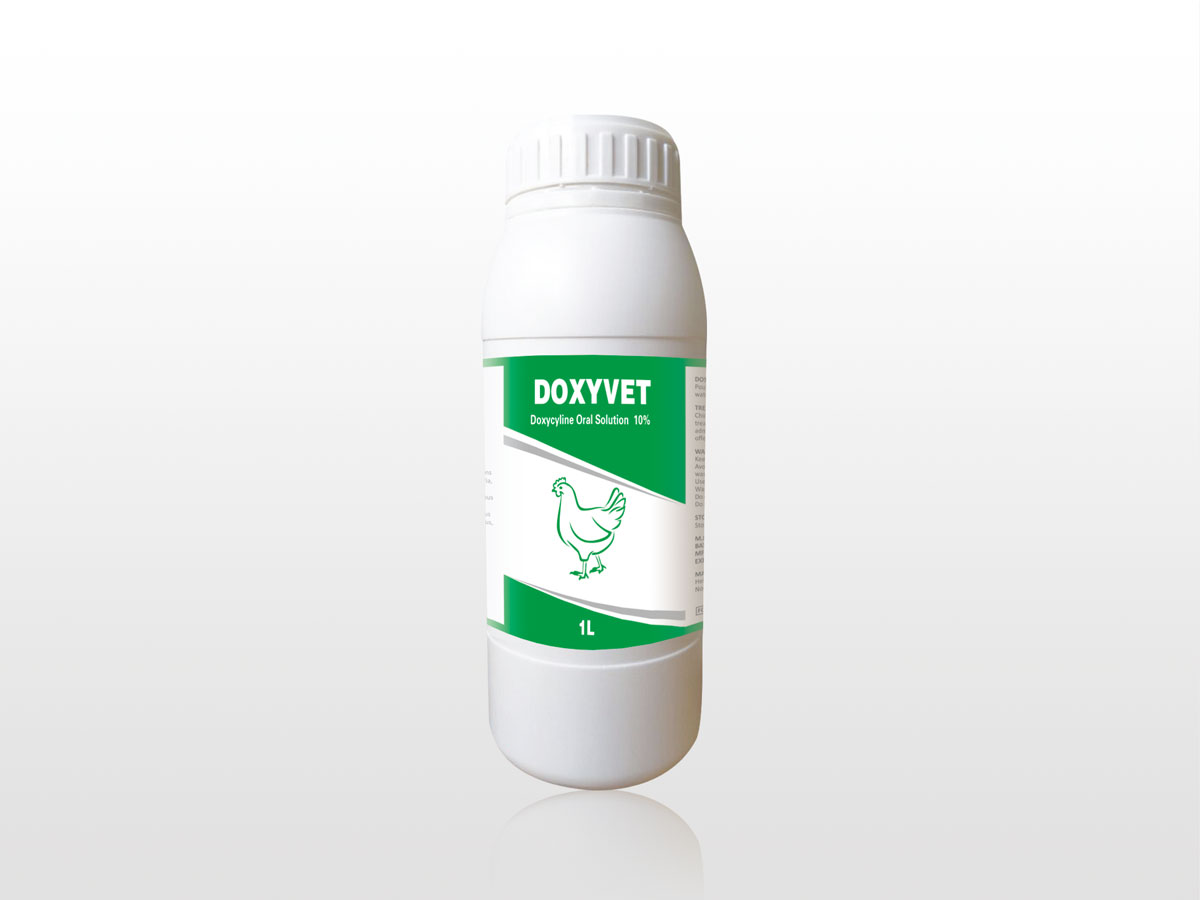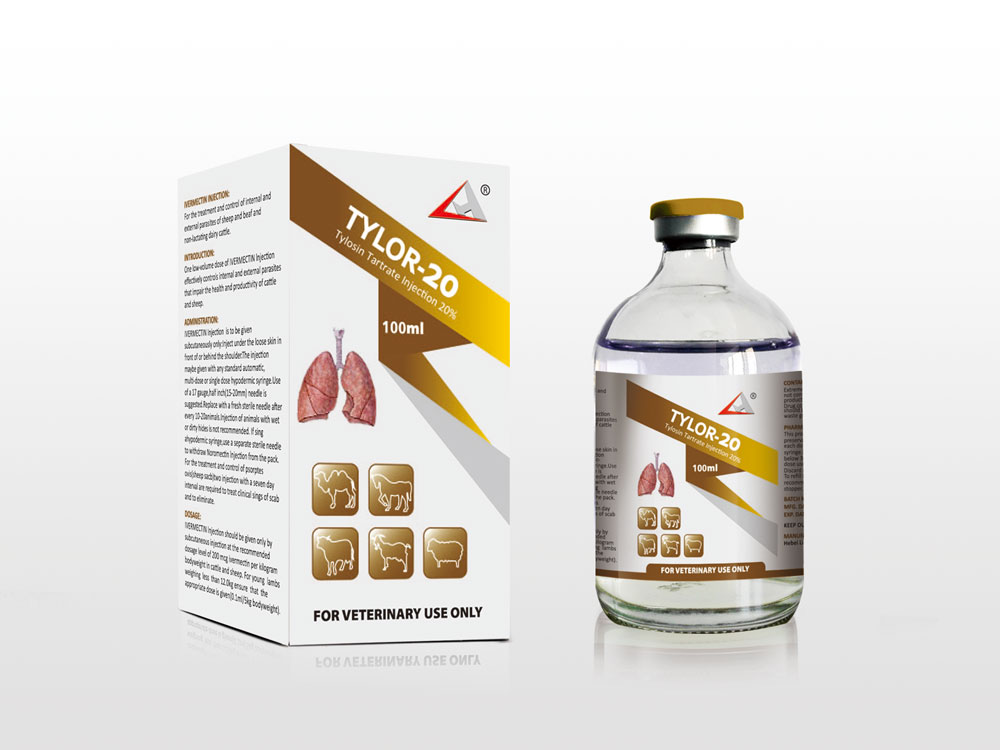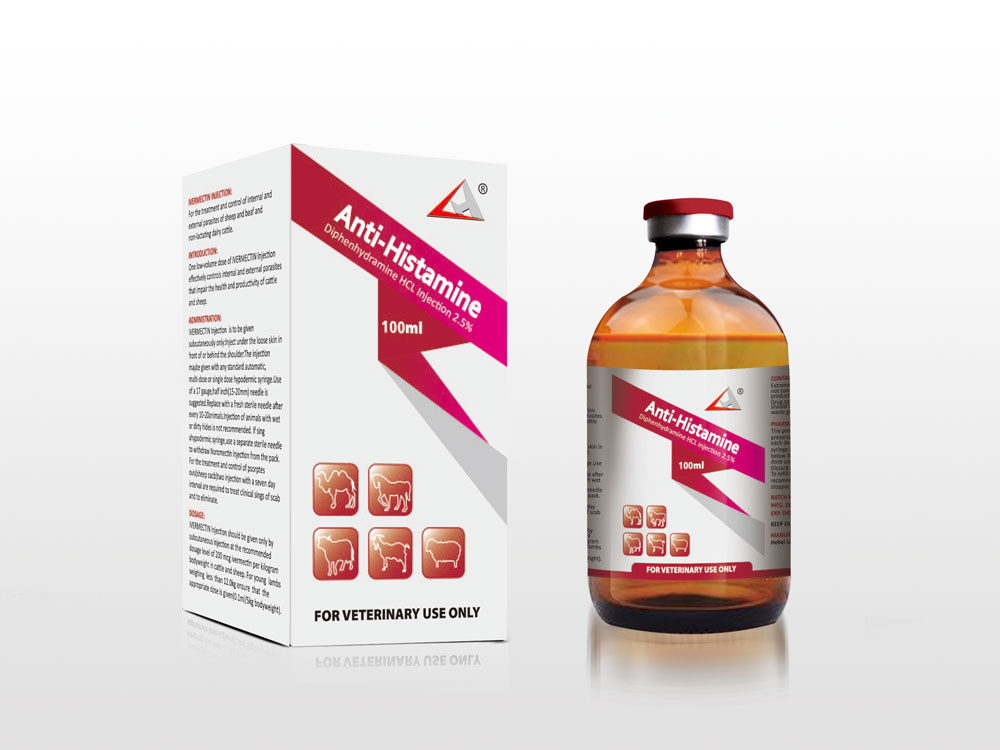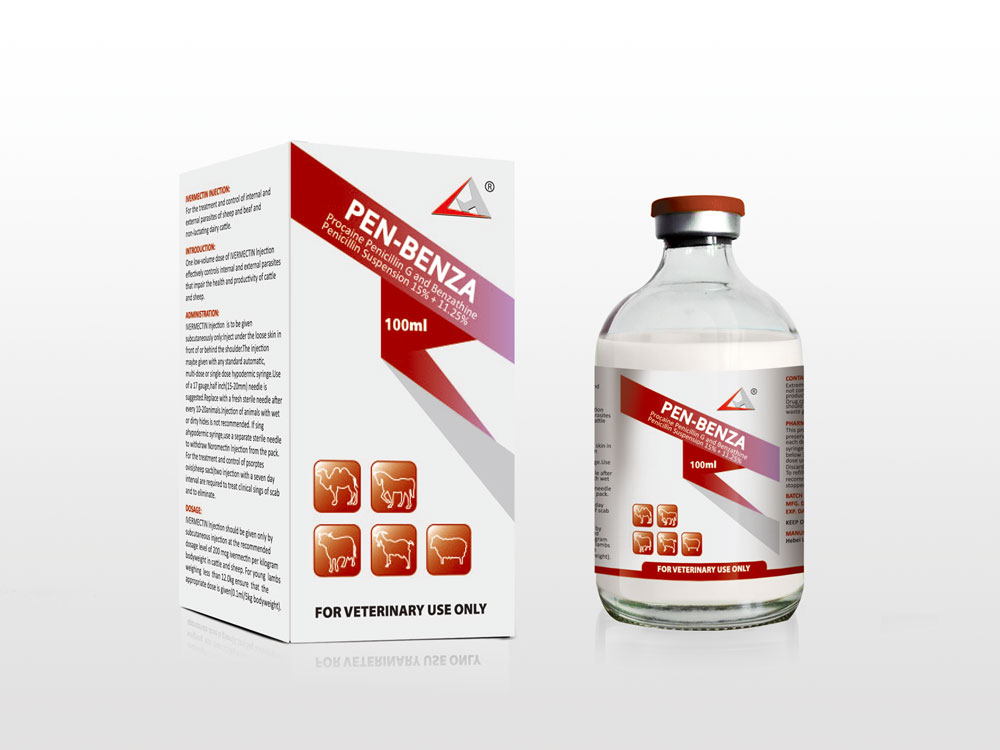Our Products
High definition Diclazuril Premix 1% - Doxycycline Oral Solution 10% – Lihua
High definition Diclazuril Premix 1% - Doxycycline Oral Solution 10% – Lihua Detail:
Doxycycline belongs to the group of tetracycline and acts bacteriostatic against many Gram-positive and Gran-negative bacteria like Bordetella, Campylobacter, E.coli, Haemophilus, Pasteurella, Salmonella, Staphylococcus and Streptococcus spp. Doxycycline is also active against Chlamydia, Mycoplasma and Rickettsia spp. The action of doxycycline is based on inhibition of bacterial protein synthesis. Doxycycline has a great affinity to the lungs and is therefore especially useful for treatment of bacterial respiratory infections.
Indications
Chickens (broilers):
Prevention and treatment of chronic respiratory disease (CRD) and mycoplasmosis caused by microorganisms sensitive to doxycycline.
Pigs:
Prevention of clinical respiratory disease due to Pasteurella multocida and Mycoplasma hyopneumoniae sensitive to doxycycline.
The presence of the disease in the herd should be established before treatment.
Administration and Dosage
For oral administration. Chickens (broilers): 11.5 – 23 mg doxycycline hyclate / kg body weight / day, corresponding to 0.1 – 0.2 ml Doxysol Oral per kg body weight, for 3-5 consecutive days. Pigs: 11.5 mg doxycycline hyclate/ kg body weight / day, corresponding to 0.1 ml of Doxysol Oral per kg body weight, for 5 consecutive days.
Side Effect
Allergic and photosensitivity reactions can occur. Intestinal flora may be affected if treatment is very prolonged, and this may result in digestive disturbance.
Withdrawal Times
- For meat & offal:
Chickens (broilers) : 7 days
Pigs : 7 days
- Eggs: Not permitted for use in laying birds producing eggs for human consumption.
Storage
Store below 25ºC, in a cool and dry place, and protect from light.
For Veterinary UseOnly , Keep out of reach of children
Product detail pictures:
Related Product Guide:
To create much more price for clients is our company philosophy; purchaser growing is our working chase for High definition Diclazuril Premix 1% - Doxycycline Oral Solution 10% – Lihua , The product will supply to all over the world, such as: Argentina, Holland, belarus, To let customers be more confident in us and get the most comfortable service, we run our company with honesty, sincerity and best quality . We firmly believe that it is our pleasure to help customers to run their business more successfully, and that our experienced advice and service can lead to more suitable choice for the customers.
The goods are very perfect and the company sales manager is warmful, we will come to this company to purchase next time.
HOT-SALE PRODUCT
Quality First, Safety Guaranteed







